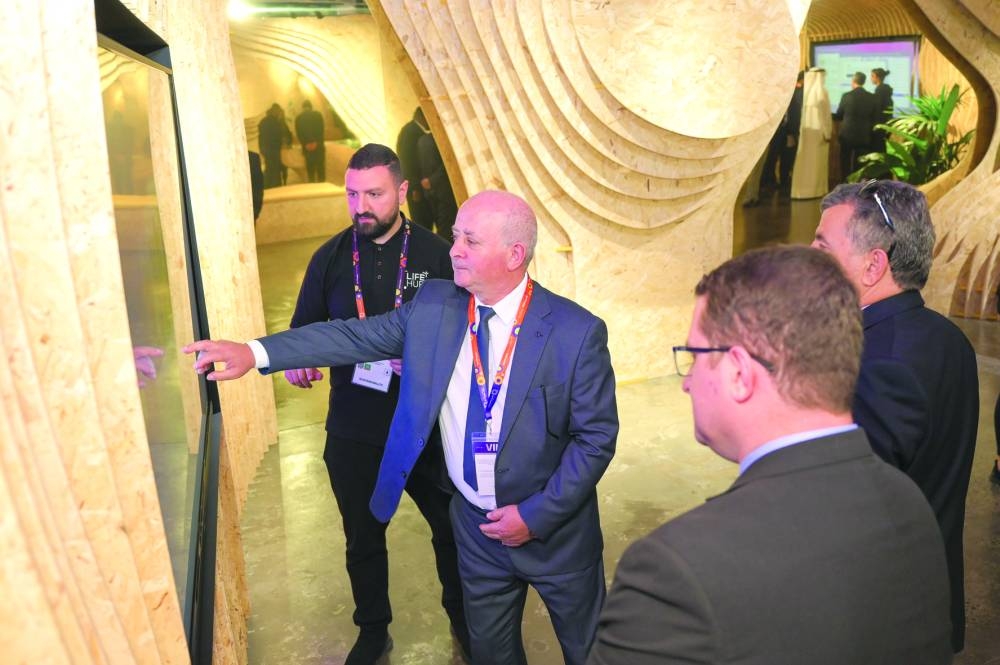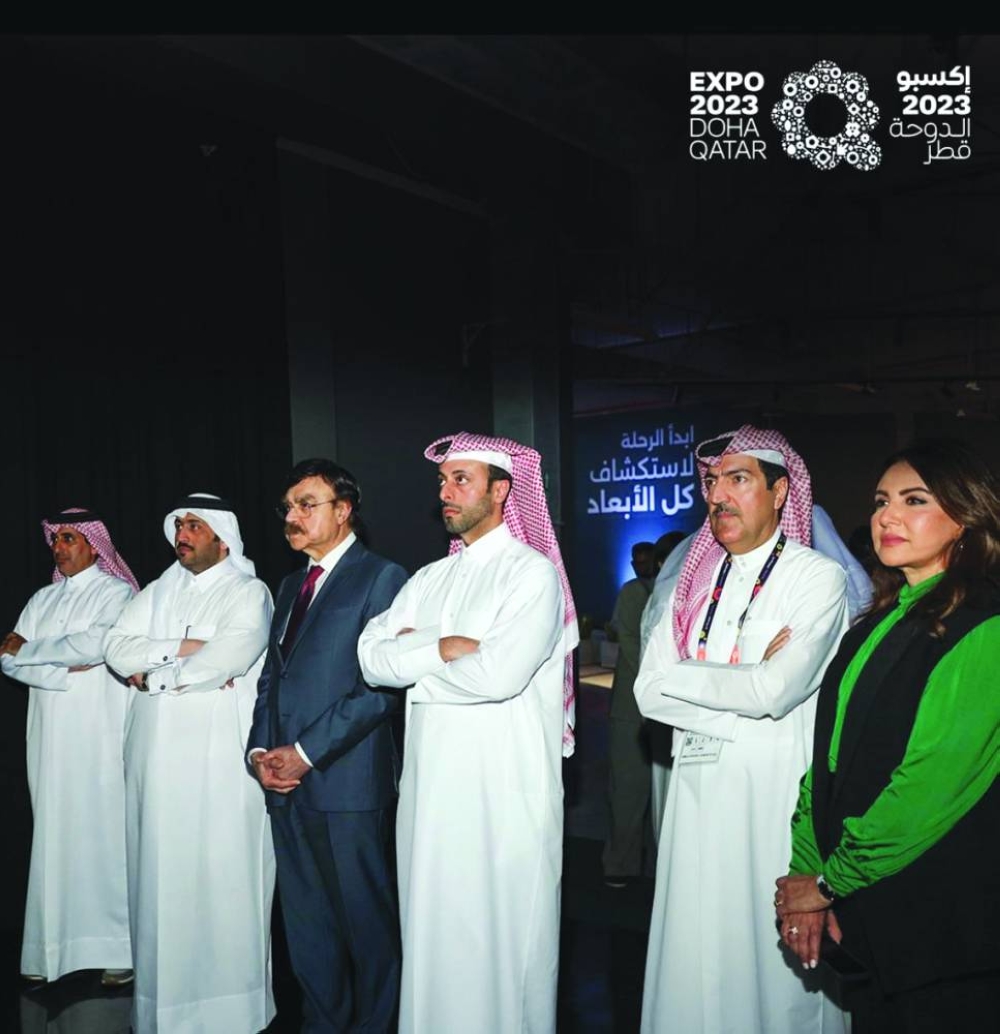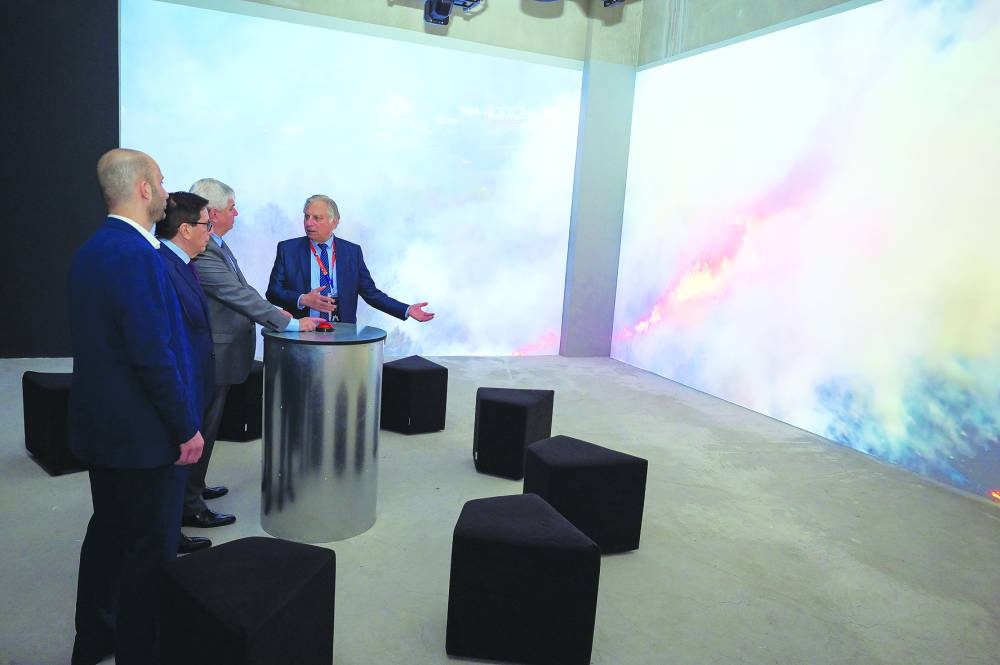Weill Cornell Medicine-Qatar (WCM-Q)’s LifeHub Pavilion at Expo 2023 Doha highlights the potential of a future in which innovation, research and development (R&D) and artificial intelligence (AI) drive improvements in both human health and environmental sustainability.
Located in the Innovation Centre of the International Zone at Expo 2023 Doha in Al Bidda Park, LifeHub is an immersive educational experience held in collaboration with the Ministry of Municipality and the Ministry of Environment and Climate Change.
HE the Minister of Municipality Abdullah bin Hamad bin Abdullah al-Attiya, Expo 2023 Doha Sevretary-General Mohamed Ali al-Khoori, and ambassadors of several missions in Qatar participated in an educational tour of the LifeHub.
They explored the wealth of knowledge it offers and discussed the potential of AI in advancing towards a more sustainable future.
HE al-Attiya praised Expo 2023 Doha and the WCM-Q for their efforts to raise awareness on climate change and push forward the agenda of sustainability.
“Qatar remains steadfast in its commitment to advancing sustainability practices,” he said. “Leveraging technological advancements is paramount in driving us towards a more sustainable future and realising the Qatar 2030 vision.”
WCM-Q dean Dr Javaid Sheikh drew attention to the inseparable link between health and sustainability and outlined the WCM-Q’s work in support of efforts to tackle climate change and environmental degradation in order to improve human health.
“The global health challenges facing humanity can only be fully understood in the context of the health of the planet which sustains us all,” he said. “As such, our task as scientists, health professionals and educators is to provide strong support for these efforts by conducting research at the cutting edge to deliver the advanced technological solutions and know-how we need to overcome these shared challenges.”
LifeHub’s many innovative experiential installations showcase four key dimensions that can be connected to create a healthier and more sustainable future for the planet: Climate Change, Sustainability, Nutrition & Wellness, and Science, Technology & AI.
The immersive experiences demonstrate a wide range of pressing concerns, including the challenges of rising sea levels, global warming and changing weather patterns, the devastating impact of plastic waste on sea life, deforestation, and other environmental issues caused by human activity.
Other sections of the pavilion explore how individuals can reduce their carbon footprint to live more sustainably, how to eat a diet that is both healthy and environmentally friendly, and how AI can be applied to healthcare, energy, transportation, agriculture, and other sectors to dramatically boost sustainability efforts and safeguard natural habitats.
The LifeHub Pavilion is open to the public and will run until March 28.
“Our collaboration with the esteemed Weill Cornell Medicine-Qatar has been a privilege,” al-Khoori said. “We take pride in showcasing the technological advancements of AI and its extensive capabilities to our visitors.”
“As we confront a critical period in addressing climate change, we are committed to exploring all available options to mitigate these challenges effectively,” he added.
“We are delighted to have the opportunity to present LifeHub, which underscores the WCM-Q’s firm commitment to helping secure a healthier and more sustainable world for future generations,” said WCM-Q communications, external affairs and development chief officer Nesreen al-Rifai. “The WCM-Q is truly grateful to Expo 2023 Doha, the Ministry of Municipality, and the Ministry of Environment and Climate Change for their crucial support for this truly important initiative.”

Ambassadors from various countries visited the LifeHub Pavilion at Expo 2023 Doha

HE Abdullah bin Hamad bin Abdullah al-Attiya with other dignitaries at the event.

Guests visiting LifeHub pavilion.
